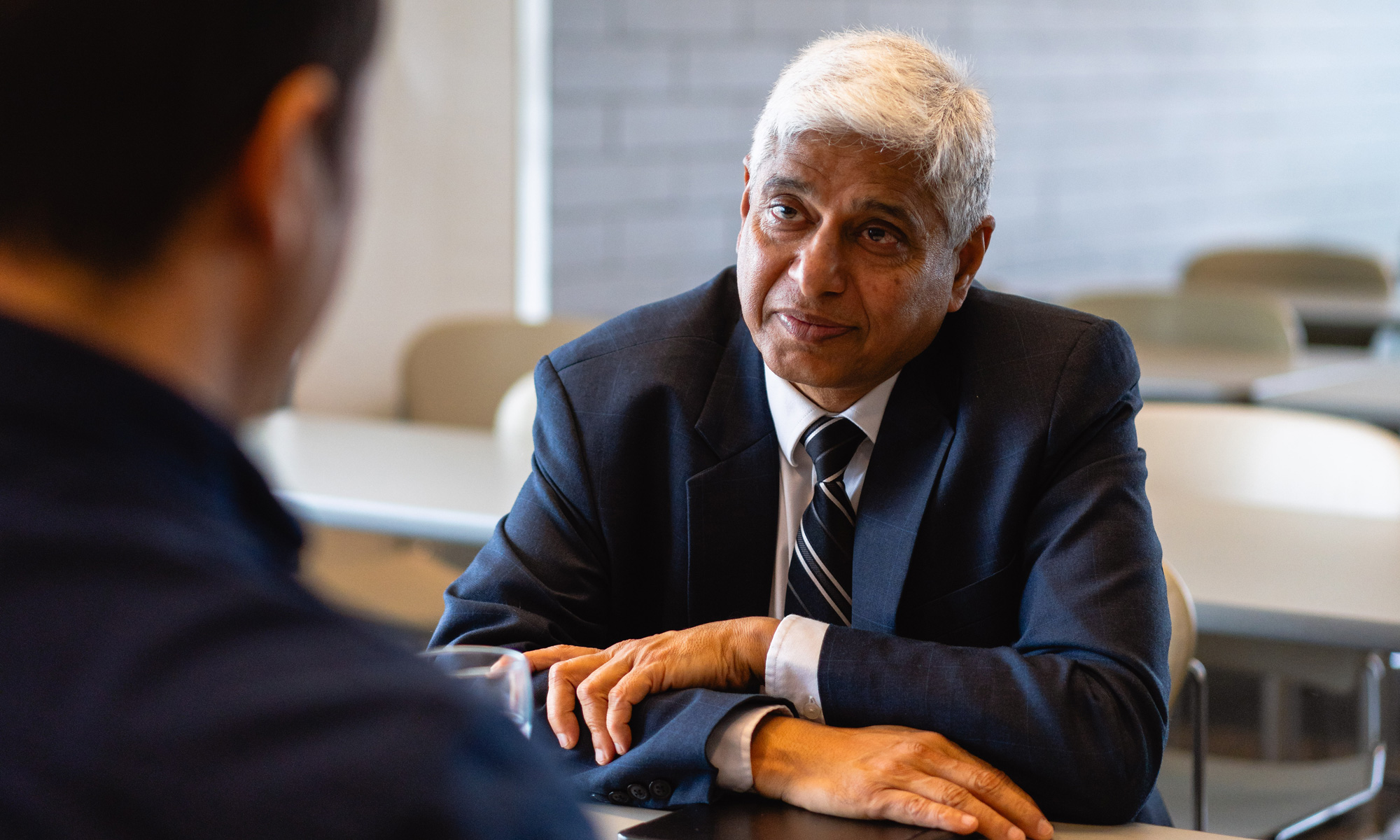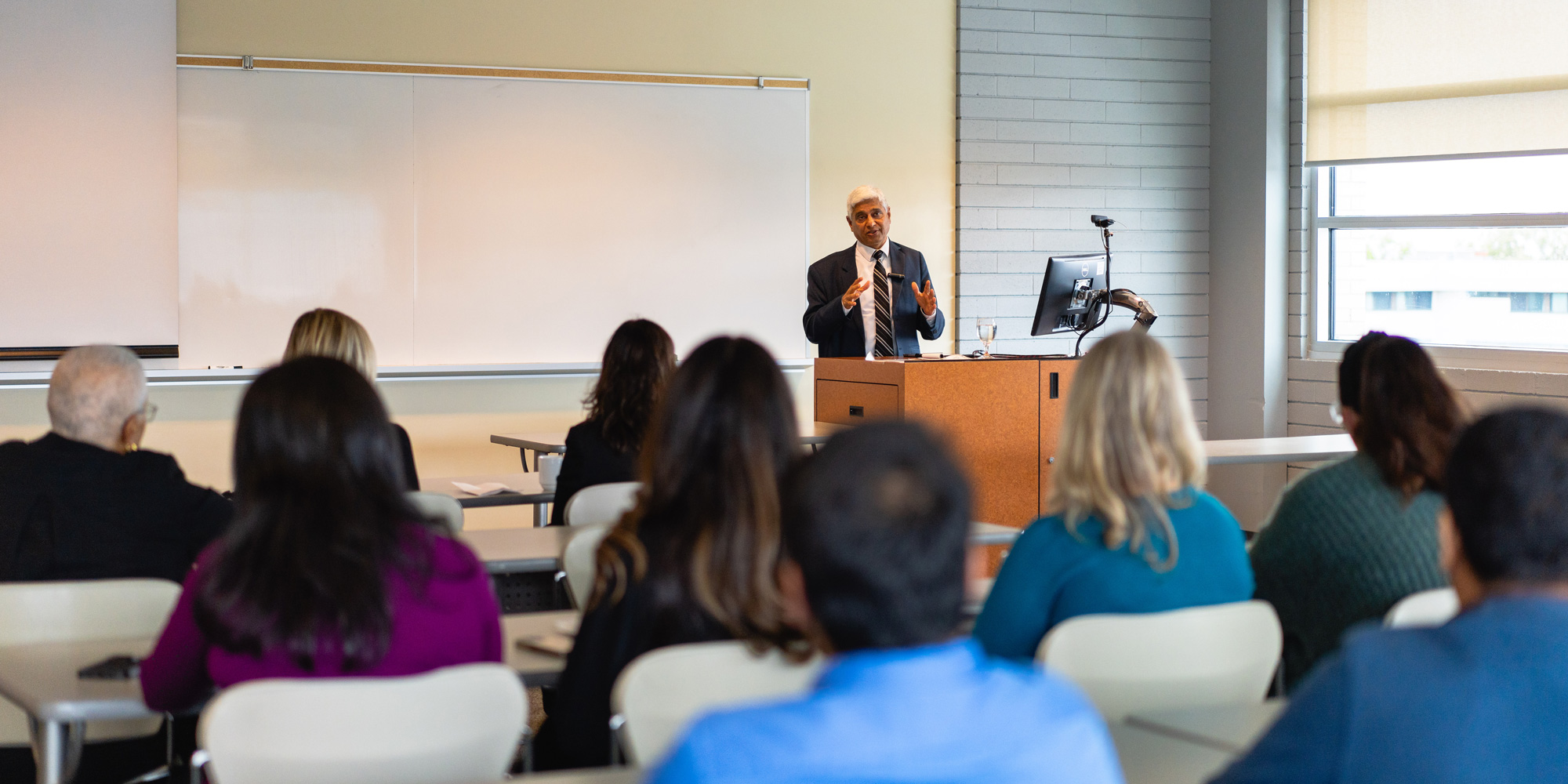The Importance of Becoming a Global Citizen, According to a Former Diplomat

“If you can embody critical thinking, empathy, and curiosity…then you can be a global citizen,” Dr. Vikas Swarup said to a room full of keen listeners on the University of Guelph-Humber campus last Monday. As the former Indian High Commissioner to Canada, a retired diplomat, and best-selling author of Slumdog Millionaire, he spoke extensively as to why global citizenship matters, and the vital role universities can play in creating these much-needed global citizens.
Dr. Swarup’s talk, entitled “The Shape of our World” was a part of his new role as a “Global Thought Leader” at the University of Guelph in partnership with the Canada-India Foundation. During this residency, Dr. Swarup is working to build bridges with Indo-Canadians, one of the largest diaspora groups in Canada and the world, through knowledge and cultural exchange.
According to Dr. Swarup, although universities cannot teach skills like curiosity and empathy, they can be honed through a university's unique intellectual environment.
"I think the best teaching is you expose the learners to an environment where...students from 50 nationalities are sitting in. Then straightaway, you understand that this fellow is not very different from me," Dr. Swarup stated.
Curiosity inspired Dr. Swarup to explore the world
Dr. Swarup grew up in Prayagraj (formerly Allahabad), India, about 700 km north of New Delhi. He desired to learn more about the world, so he studied at Allahabad University. "I think the reason I chose a career in the Foreign Service is because I was a voracious reader. I read a lot of books. You know, growing up, that was my only hobby. And reading these books by international authors provoked a curiosity in me to see those countries…And that's why I chose a career in diplomacy," Dr. Swarup reflected.
Finding common interests
After a distinguished career in the foreign service, where he worked in countries including the U.S., Canada, the UK, Japan and South Africa, Dr. Swarup gained a lot of insight and wisdom into how the world works.
In the Canada and India relationship context, Dr. Swarup focuses on what these two countries have in common - they're both diverse commonwealth democracies with a similar worldview.
Yet, recent events have caused the Canada-India relationship to become strained. Dr. Swarup urges both countries to keep the big picture in mind.
"In geopolitics, the fundamental rule is there are no permanent friends and enemies, there are only permanent interests. And I think [between] India and Canada, there's enough commonality between the two of them," Dr. Swarup said.

Global citizenship on the country level
Dr. Swarup believes countries can be essential in addressing the world's problems.
During the COVID-19 pandemic, India took on an important leadership role as countries worldwide were trying to buy enough vaccines for their people.
"India sent its 'Made in India' vaccines to more than 100 countries across the world, 235 million doses we sent across the world, including 2 million to Canada…So I would say that India wants to emerge as….a responsible country, as a country which not only thinks of itself, but also thinks of the larger good of humanity," Dr. Swarup stated.
The world needs more leaders and global citizens
As for the future of the diplomatic field, Dr. Swarup says there's still a strong need for diplomats and true leaders worldwide. The impacts of war, famine, and conflict can cause ripple effects across the globe; experts are needed to maintain lines of communication and foster understanding.
"I think the world needs more diplomats, without a doubt, because…the world has become a very complex place, and we need more intercultural understanding," Dr. Swarup said.
On a local level, while people can learn to become global citizens at universities, anyone who cares about the world can be a global citizen, too.
"Global citizens are found everywhere,” said Dr. Swarup. “An Indian farmer…can also be a global citizen. If when you go to his house and you are hungry, he offers you a lunch without asking for anything in return.…[it shows] he cares about his fellow citizens."
Are you looking for more Guelph-Humber content? Follow @guelphhumberuni to stay in the loop.


